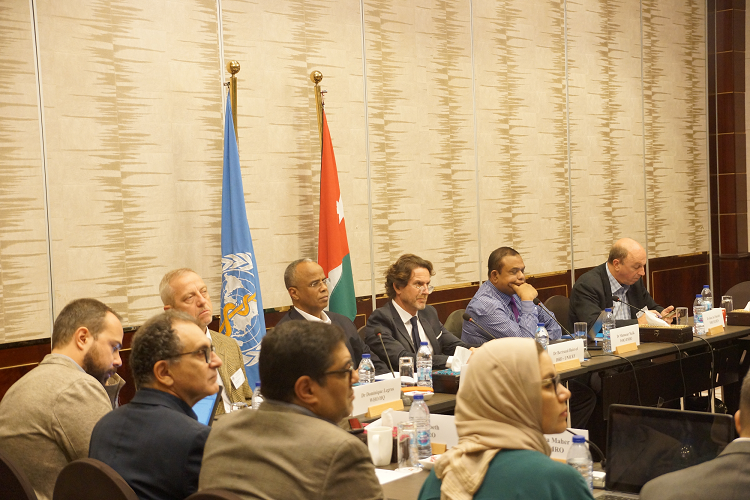 Experts from WHO, UNICEF, MSF and other partners convened in Amman to discuss and improve the response to Yemen’s ongoing cholera outbreak (Photo: WHO).
Experts from WHO, UNICEF, MSF and other partners convened in Amman to discuss and improve the response to Yemen’s ongoing cholera outbreak (Photo: WHO).25 November, 2018 – To improve the response to the ongoing cholera outbreak in Yemen, which has caused over 1.3 million suspected cases since 2016, experts from WHO, UNICEF, MSF and other partners met in Amman from 9 to 11 October. The meeting focused on identifying existing knowledge and information gaps which stand in the way of mounting an effective cholera response, as well as devising a new strategic approach to fill these gaps.
In an internal session on the first meeting day, WHO experts identified several ways to accomplish this objective at the country, regional, and headquarters level. Areas for improvement included better collaboration and coordination between the three levels, stronger monitoring and evaluation, and sharing of epidemiological data for periodic risk assessment and cholera trend monitoring.
Building on this, partners came up with additional recommendations covering all relevant response areas such as disease surveillance, laboratory strengthening, cholera hotspot mapping, the use and training of Rapid Response Teams, cholera case management, vaccination campaigns, risk communication, and water, sanitation and hygiene.
Finally, participants analysed and discussed the ways in which the situation on the ground in Yemen could complicate the recommended improvements. The volatile political situation, limited staff support and lack of access to parts of the country, the destruction of health, water and sanitation systems – participants agreed that challenges to the newly agreed approach were daunting. Nevertheless, with the renewed strategic focus and an awareness of present obstacles, partners were hopeful to improve the response to this largest cholera outbreak in history.




